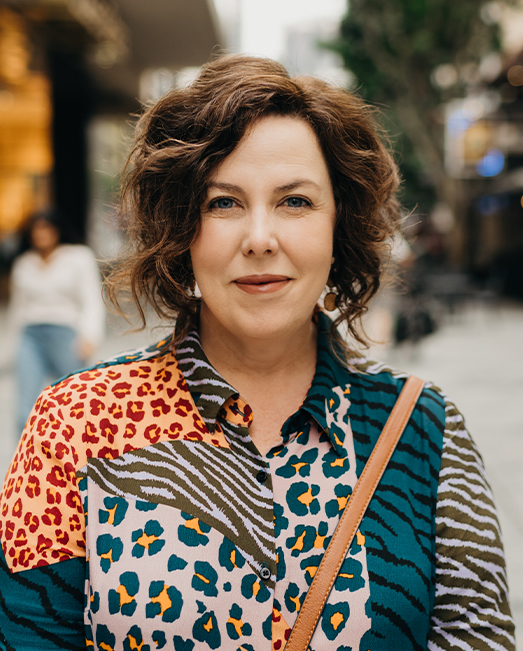Career
Copyright@ Australian Catholic University 1998-2026 | ABN 15 050 192 660 CRICOS registered provider: 00004G | PRV12008
Copyright@ Australian Catholic University 1998-2026 | ABN 15 050 192 660 CRICOS registered provider: 00004G | PRV12008

Catherine Connors’ career began in the corporate sector before she made a move into teaching. She’s now a passionate religious educator and assistant principal, inspiring her young pupils with her faith.
Catherine came to ACU after deciding to become a teacher in a Catholic primary school. She first completed a Master of Religious Education, and before she had even graduated she had already begun a Master of Educational Leadership, in addition to having an education degree and a Bachelor of Arts in psychology.
“I’ve always loved learning. To borrow Albert Einstein’s words, ‘The more I learn, the more I realise how much I don’t know’. My time studying at ACU has inspired me to want to know more and to apply new knowledge in practical ways,” she said.
“I decided to return to study because I was passionate about Catholic education, engaging students in religious education and involving them in the religious life of their school.
“As an early career teacher, I knew it was important to develop my theoretical knowledge and to look at the latest research to inform and reflect on my own practice.

“I began by enrolling in the Graduate Certificate in Religious Education, but I wanted to keep going and it soon became a master’s.
“What I really like about the masters by coursework program is coming up with the capstone projects at the end of the degree. They do take time, but there is an opportunity to delve into areas that are of interest to you in a hands-on way.
“My research project for the Master of Religious Education explored the impact of live liturgical music (rather than recorded music) on student’s active participation in liturgical celebrations in a Catholic primary school. I found it really interesting to hear from students about the effect that live music during prayer had on them.
“For my current Master of Educational Leadership I’m investigating ways to connect young families to faith in Australian Catholic schools in the post-religious age. So, I’m looking at how parents and carers view the Catholic identity of their child’s school and how they would like to be part of that faith community.”

Catherine fits in her studies whenever she can around her job as Assistant Principal, Religious Education at a Catholic primary school in Brisbane, which is a role she came to after following a different pathway.
“Previously, I worked in the corporate world, working as a company manager, events manager and project manager, here and in the UK, before deciding to follow my heart and study to become a teacher.
“I started in the classroom, which I loved. Now as an assistant principal, I feel like I have the best of both worlds.
"I still get to co-teach religious education with colleagues from different year levels and come up with innovative pedagogy to engage our students – as well as planning how to strengthen Catholic identity and creating ways to help our students have a sense of ownership within the religious life of our school.”
And while Catherine is happy and fulfilled by her current role, she doesn’t have any regrets about not finding teaching earlier on.

“What I learnt in the corporate sector has provided me with a strong foundation in areas that are important elements of educational leadership and administration, such as marketing, data analysis, problem-solving and project management. And I’ve come to teaching with broad range of work and life experiences.”
Catherine’s advice for other educators looking to move into a role like hers is to continually look for opportunities to learn and to grow.
“If there’s a professional learning community for something you are interested in, put your hand up to join. As well as building your knowledge and skills, you’ll be building relationships with your colleagues and community.
“Try to find time to read about or discuss new and different ways of approaching challenges. Ask for, listen to and appreciate the ideas of your lecturers, mentors and colleagues and consider their perspectives.
“And learn from the times when things don’t go so well. Plan how to deal with the same situation if it comes up again in a way that enables you to act with integrity and that reflects the leader (and learner) you aspire to be.”
Learn more about where a postgraduate degree in religious education can take you.
Copyright@ Australian Catholic University 1998-2026 | ABN 15 050 192 660 CRICOS registered provider: 00004G | PRV12008